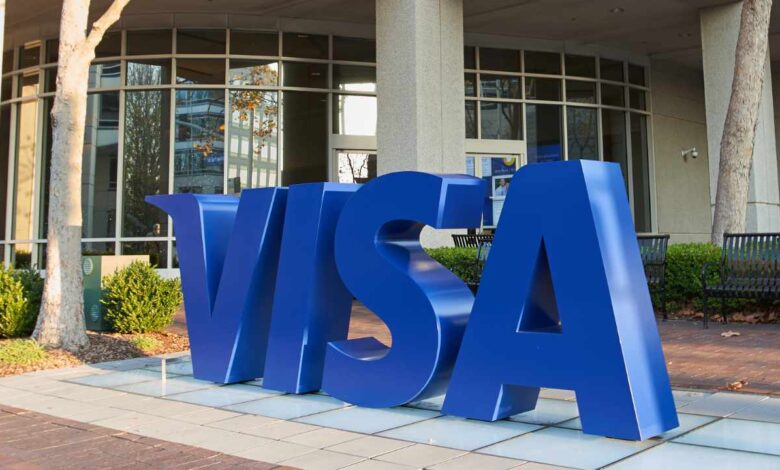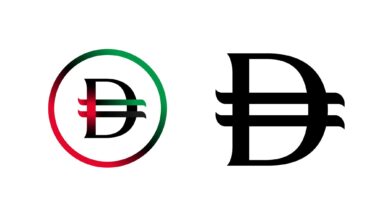Ethereum Users One Step Closer to Being Their Own Bank, Visa Proposal Suggests

Credit giant Visa released a proposal that would let owners of the Ether cryptocurrency set up automatic payments directly from their own, self-custodial wallets, a proposal that would not require banks or other centralized entities to be part of the picture.
While the service is far from groundbreaking to pretty much anyone who has a bank account, the proposal, resulting from an internal hackathon hosted by Visa earlier this year, would go a long way to making the often obtuse world of crypto more approachable for consumers
Coming at a time when more than $2 trillion has been wiped off the cryptocurrency market value, and following numerous high-profile bankruptcies of centralized exchanges and lenders, the proposal is the latest of a number of promising efforts to align digital assets with early proponents’ vision of a banking system shorn of layers of fee-grabbing intermediaries.
Visa’s head of central bank digital currencies and protocols, Catherine Gu, who co-wrote the proposal says that, “If one of the major use cases of blockchain is for payments, then the basic requirement is that the blockchain has to function just as good as today, if not better.”
The proposal, published on Visa’s website, emerged from a competition among the company’s employees in February to solve the problem of how an ether owner could pay a bill with crypto at a future date while temporarily away from internet service.
With a bank, the process of pre-authorized payments is easy because the financial institution can write whatever rules it wants for its account holders. However, it is much more complicated in the world of public blockchains, where a single codebase of basic tools, called blockchain primitives, is available to anyone. The Ethereum network today offers externally owned accounts (EOA), or user accounts, and contract accounts, which automatically run code known as smart contracts.
The Visa proposal would essentially merge the two into a single account, turning the smart contract for executing commands into a software wallet for storing cryptocurrency; a process called account abstraction (AA). The idea of turning the smart contract itself into a wallet was proposed in 2015 by Ethereum creator Vitalik Buterin and formalized in 2017 as Ethereum improvement proposal (EIP) 86. Currently marked as “stagnant” resulting from more than six months of inactively, the Visa proposal could rejuvenate interest, if Buterin marked it as Draft, or if one of several newer proposals sees traction.
“The truth is there is still debate on how AA should be implemented on Ethereum,” the paper authors wrote.
In addition to the research on automating payments, the Visa team is working with Ethereum developers outside the company to increase the capacity to handle large volumes of transactions, provide increased security, interoperate with other blockchains, and do it all while ensuring users’ privacy is protected, according to Gu.
“We are committed to continuing to do research and do more education, into blockchain primitives and protocols surrounding things that will be potentially important for payments,” she says. “So I think this is an ongoing effort.”
Though Visa was among the first traditional payment giants to take digital assets seriously, with the 2015 launch of its first crypto-linked card, it is now competing against the likes of Mastercard, PayPal, and Block (formerly known as Square), in bringing such payments to mainstream users.
The account abstraction hackathon predates the crypto market collapse by several months, but the timing of this announcement happens to coincide with a larger push by crypto developers to emphasize the early “not your keys, not your crypto” mantra, that opposes centralized exchanges and other entities maintaining custody of digital assets owned by their customers.
Since FTX filed for bankruptcy in November, centralized exchange volume has diminished to $14 billion from $34 billion, according to Forbes analyst and co-founder and CEO of investment manager NovaBlock, Leeor Shimron, though after an initial bump in decentralized exchange volume, transacted on codebases that connect traders directly, the numbers have reduced due to “lower asset prices and thus less interest heading into the holidays,” he says.
Similarly, hardware wallets, visually similar to USB sticks, which give users extra layers of protection while still holding their own private access keys have also increased, though not without controversy.
In November, Czech Republic-based Trezor reported that its device sales increased 300% from the monthly average in the preceding quarter, though there are possible vulnerabilities resulting from the role hardware developers play in providing the security of customers’ assets.





